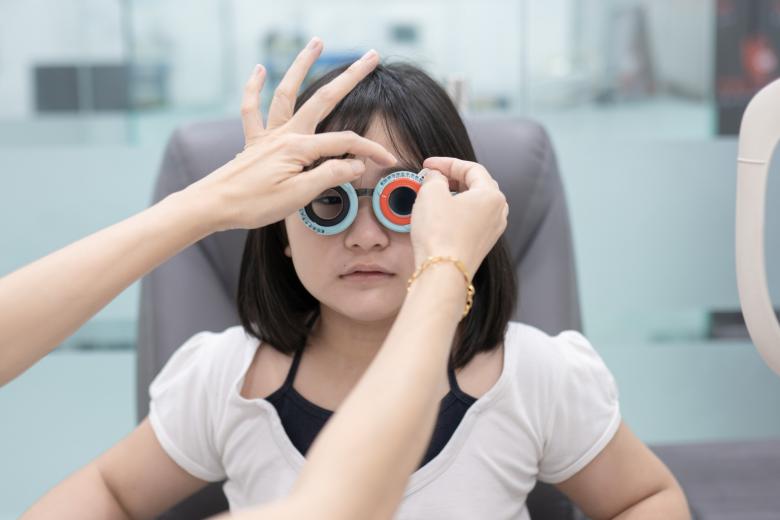
As screen time shot up with more time spent indoors, more children started to have myopia or found their condition worsening, say eye-care professionals and doctors. PHOTO: ISTOCKPHOTO
SINGAPORE - Childhood myopia and obesity - already on the rise in Singapore before Covid-19 hit - became bigger problems this year.
As screen time shot up with more time spent indoors, more children started to have myopia or found their condition worsening, say eye-care professionals and doctors.
Myopia - also known as shortsightedness or near-sightedness - is a vision disorder where distant objects appear blurry.
Covid-19 measures resulted in insufficient outdoor time and prolonged or excessive near-work for many children, says Dr Janice Lam, a consultant at the National University Hospital's (NUH) Department of Ophthalmology.
Near-work includes reading, studying or looking at screens at close distances. Studies show that spending two hours a day outdoors helps prevent the onset or progression of myopia in children.
If myopia in children is not controlled, Dr Lam notes, more serious complications may occur later in life - such as glaucoma, myopic macular degeneration and retinal detachment.
Dr Saadia Farooqui, a consultant in the Paediatric Ophthalmology and Adult Strabismus Department at Singapore National Eye Centre, suggests that children's routines should include outdoor time during daylight hours, even if they are not exercising. For example, they can go for outdoor playdates or nature walks.
Kids are also putting on the kilos with a more sedentary lifestyle during the pandemic.
The Straits Times reported in July that the Weight Management Clinic at KK Women's and Children's Hospital, which sees overweight or obese children, recorded a 12 per cent uptick in cases.
Dr Nicholas Ng, an associate consultant at the Khoo Teck Puat-National University Children's Medical Institute at NUH, notes that obesity has been found to be a risk factor for severe disease in persons infected by Covid-19 in several studies.
Many complications of childhood obesity "often begin silently without symptoms", he adds.
Complications from diabetes or hypertension, for instance, may not be obvious until they reach an advanced stage.
Get the Health Buddy App
© 2025 SingHealth Group. All Rights Reserved.













 Get it on Google Play
Get it on Google Play